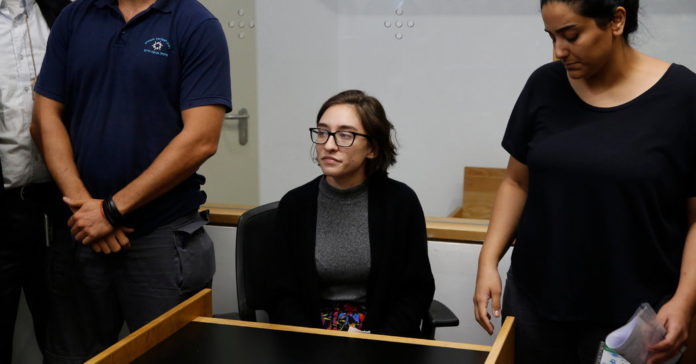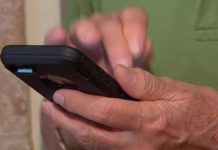JERUSALEM — Israel’s Supreme Court ordered the government on Thursday to admit an American woman on her student visa, overruling the Interior Ministry, which pushed to deport her over a stint as an advocate for Palestinian rights while she was an undergraduate at the University of Florida.
Lara Alqasem, 22, had been held in a cell at Ben Gurion Airport for more than two weeks while she fought deportation. She will now be allowed to follow through on her plans to enroll at Hebrew University in Jerusalem, where she hopes to study for a master’s degree in human rights law.
The Interior Ministry accused Ms. Alqasem, while she led a campus chapter of Students for Justice in Palestine, of actively supporting the Boycott, Divestment, and Sanctions movement that presses Israel to end the occupation of the West Bank. Israeli officials consider the movement anti-Semitic and bent on Israel’s destruction as it also promotes the right of return for millions of Palestinian refugees to their former homes.
The case put an uncomfortable spotlight on what has become an acrimonious debate over who should be allowed into the country and more broadly, the health of Israeli democracy. Ms. Alqasem’s supporters, and even some critics on the right, accused the government of an overzealous border policy and said it would do more damage to Israel’s image abroad than any student’s call for a boycott.
In their decision, a three-judge panel of the Supreme Court echoed those concerns. Because Ms. Alqasem had promised not to call for a boycott of Israel, and had left the group a year and a half ago — “a significant period of time,” given her young age — her actions “do not raise satisfactory cause to bar her entry to Israel,” Judge Anat Baron wrote.
For that reason, Judge Baron continued, “the inevitable impression is that invalidating the visa given to her was due to the political opinions she holds. If this is truly the case, then we are talking about an extreme and dangerous step, which could lead to the crumbling of the pillars upon which democracy in Israel stands.”
Ms. Alqasem’s lawyers accused the government of relying on flimsy evidence, and officials acknowledged that they had relied at least in part on Google searches and the work of an organization called Canary Mission, which says it “documents people and groups that promote hatred of the U.S.A., Israel and Jews on North American college campuses.”
After being denied entry, Ms. Alqasem, who has Palestinian grandparents, appealed to the Tel Aviv district court. At the request of a judge, she formally declared that she would not participate in any boycott activities while in Israel and that she had no intention of visiting the Palestinian territories, according to her lawyers, Leora Bechor and Yotam Ben-Hillel.
A key issue at oral arguments before the Supreme Court on Wednesday was whether Ms. Alqasem remained an activist in the boycott movement or, as she testified before the lower court, had parted ways with the organization in early 2017.
The government, in seeking to rebut her testimony, charged that she had clicked “Attend” on the Facebook page of at least one event connected to the movement this year. The judges were not persuaded.
Her lawyers argued that there should be limits to the Interior Ministry’s discretion in enforcing the sanctions law, particularly because it restricts free speech. And representatives of Hebrew University warned that if students with valid visas could be turned away when they arrive in Israel over their activist pasts, there would a chilling effect on academic and cultural exchanges, which Israel prizes.
In the past, Israeli officials have said the 2017 entry law would not penalize people for their political opinions alone and would apply only to major figures in the boycott movement.
While the law has so far been used sparingly — only about 15 people have been denied entry so far, according to officials — Israel has come under unwelcome scrutiny for detaining and questioning some high-profile critics at its entry points.
The entry law itself is being challenged in separate litigation. The judges in Ms. Alqasem’s case needed only to find that she was no longer a boycott movement activist, whatever her past actions or present beliefs, to overrule her deportation.
Source : Nytimes












